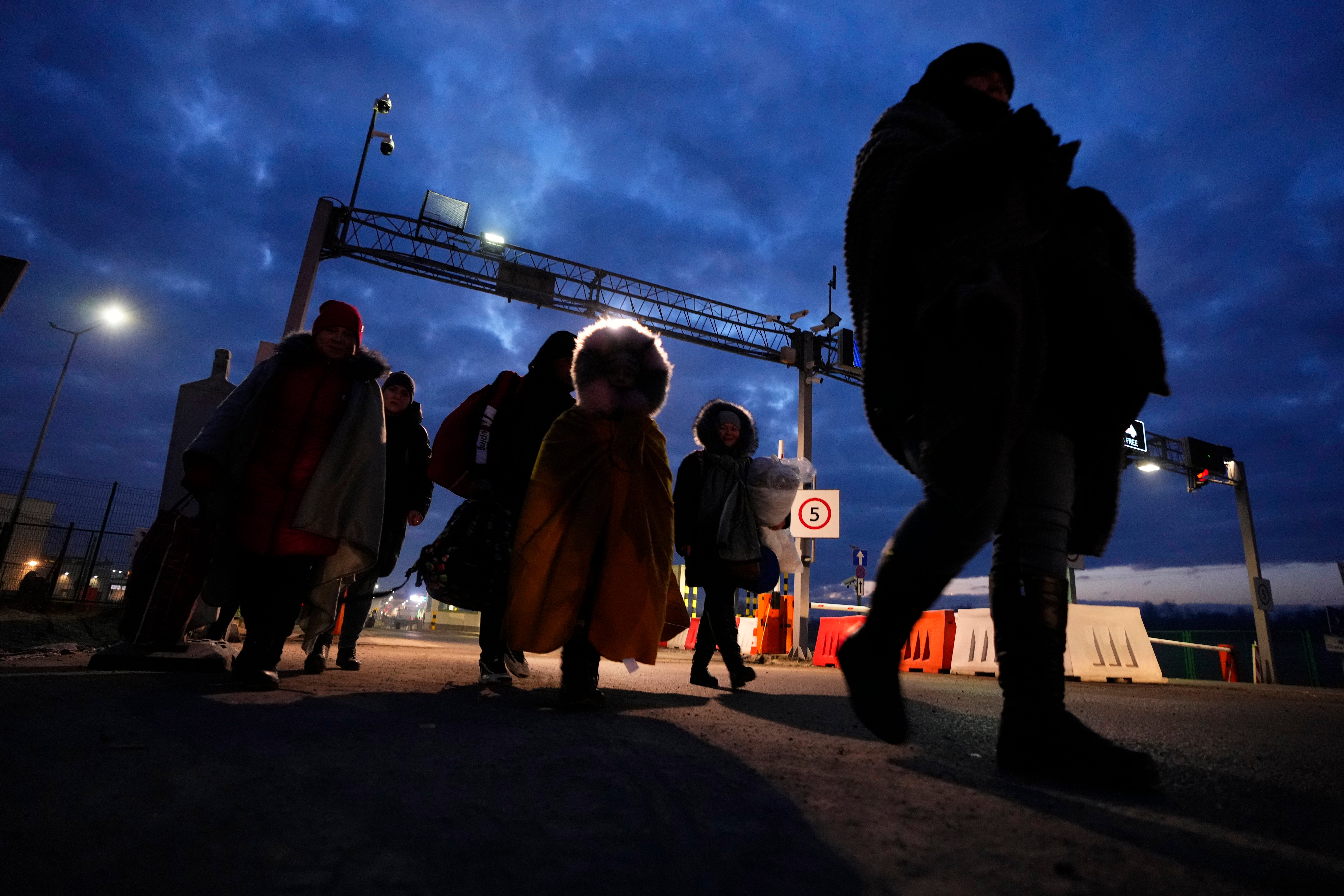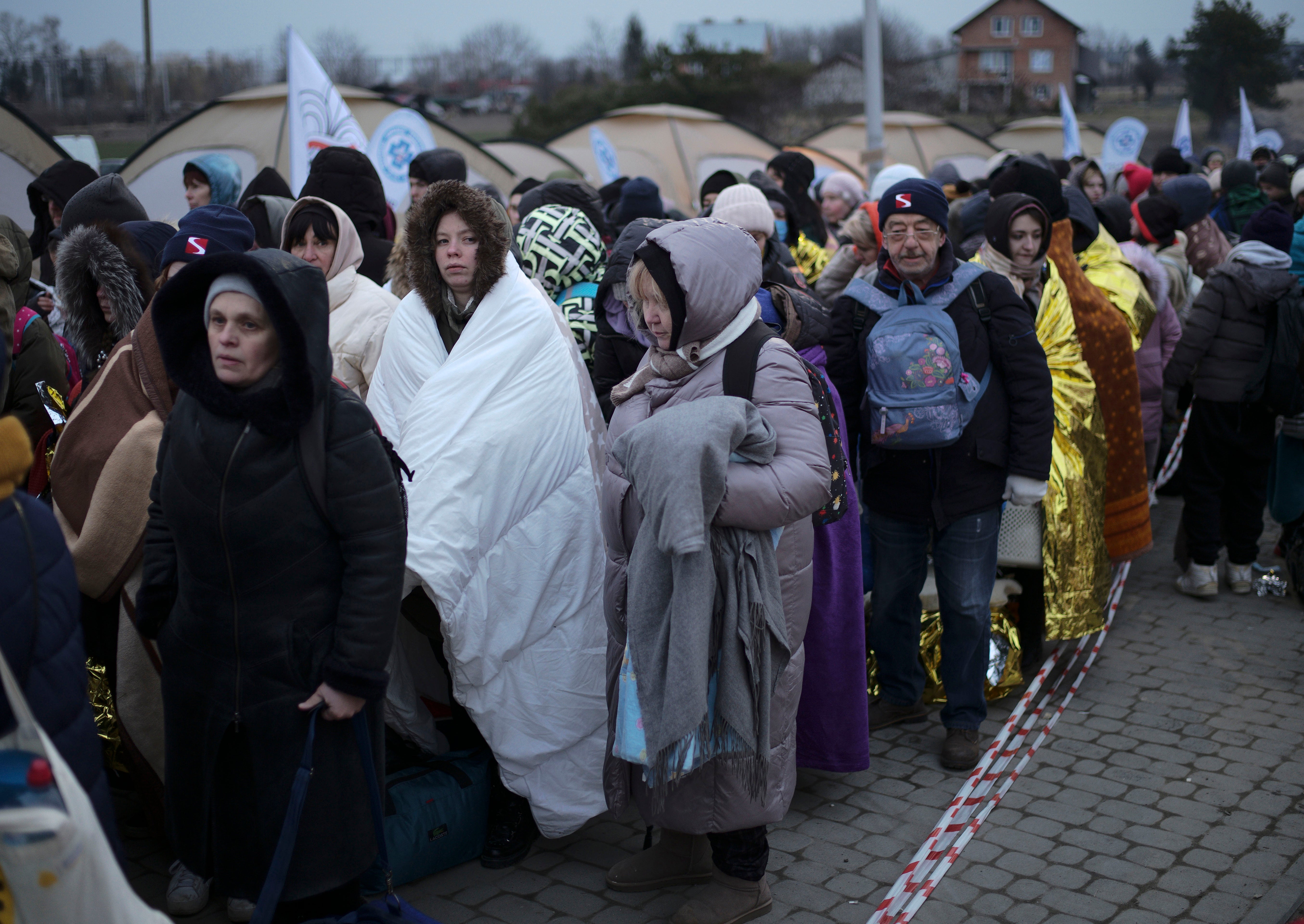Nearly 1m people apply for asylum across EU in 2022, up 50 per cent from 2021
The EU Agency for Asylum said 966,000 asylum applications were made in the 27 EU countries as well as in Norway and Switzerland last year

Your support helps us to tell the story
From reproductive rights to climate change to Big Tech, The Independent is on the ground when the story is developing. Whether it's investigating the financials of Elon Musk's pro-Trump PAC or producing our latest documentary, 'The A Word', which shines a light on the American women fighting for reproductive rights, we know how important it is to parse out the facts from the messaging.
At such a critical moment in US history, we need reporters on the ground. Your donation allows us to keep sending journalists to speak to both sides of the story.
The Independent is trusted by Americans across the entire political spectrum. And unlike many other quality news outlets, we choose not to lock Americans out of our reporting and analysis with paywalls. We believe quality journalism should be available to everyone, paid for by those who can afford it.
Your support makes all the difference.Nearly one million people applied for international protection in the European Union in 2022, marking a 50 per cent increase on the year before.
It brings the number of asylum requests to a level not seen since 2015-2016 and the caseloads of applications pending decision is at its highest since 2017, according to data published today.
And after more than a decade of war and economic collapse in their country, Syrian people continued to be the top nationality of asylum-seekers in Europe with more than 130,000 applications.
The EU Agency for Asylum (EUAA) said 966,000 asylum applications were made in the 27 EU countries as well as in Norway and Switzerland last year, which is up 50 per cent from 2021.
That doesn’t include more than four million Ukrainian refugees who were granted temporary protection in the EU through the Temporary Protection Directive, a special mechanism activated to avoid collapsing already backlogged asylum systems.
The European agency linked the increase to the continuing easing of COVID-19 travel restrictions, increasing food insecurity and conflicts in many parts of the world.
Although most asylum-seekers enter the EU legally, mainly by plane with travel visas, some also crossed the EU’s land and sea borders without permission, mainly through the Western Balkans and the Mediterranean.
With Syrian people submitting the highest number of applications, people from Afghanistan were second, fleeing the spiraling security, humanitarian and financial troubles that followed the Taliban takeover in August 2021, with 129,000 requests.
Applicants from Turkey were the third top nationality for asylum seekers. They doubled in numbers last year with 55,000 requests.

Soaring inflation and “democratic backsliding” were among the factors believed to have caused the increase, the agency said.
In many places, reception centers are overwhelmed, leaving asylum-seekers in the streets.
It is thought the recent earthquake that killed nearly 46,000 people and left hundreds of thousands homeless in Turkey and Syria may lead to a surge in irregular border crossings into Greece.
Germany offered earlier this month to temporarily ease visa restrictions to some earthquake survivors while Spain promised to resettle a small group of 100 vulnerable Syrian refugees from Turkey, which is home to four million refugees.
Venezuelans, Colombians, Bangladeshis and Georgians also applied for asylum in record numbers last year, as did Moroccans, Tunisians and Egyptians.
Some four per cent of asylum-seekers in 2022 defined themselves as unaccompanied minors.
The EUAA increased its technical and operational support last year, with the number of countries benefitting from that support quadrupling since 2019.
A total of 13 member states benefitted from the EUAA Operational Support including Austria, Belgium, Bulgaria, Cyprus, Czechia, Greece, Italy, Malta, Netherlands, Lithuania, Romania, Slovenia, and Spain. This involved deploying over 1,500 personnel.
The agency is also providing support in Moldova.
Which countries in Europe have asylum seekers applied to?
An EU migration report has revealed the top five countries that received applications in 2022
The EUAA didn’t say which EU countries received the most applications last year.
But an internal EU migration report seen by the Associated Press lists Germany, France, Spain, Austria and Italy as the top five.
Asylum authorities issued decisions on more than 600,000 applications last year but they received even more new cases, adding to the existing backlog.
Of the applications analysed, 40 per cent were granted refugee status or subsidiary protection.
This was mostly for Syrian, Belarusian, Eritrean, Yemeni, and Malian applicants, as well as for most of the Ukrainians who chose to apply for asylum instead of temporary protection.



Join our commenting forum
Join thought-provoking conversations, follow other Independent readers and see their replies
Comments